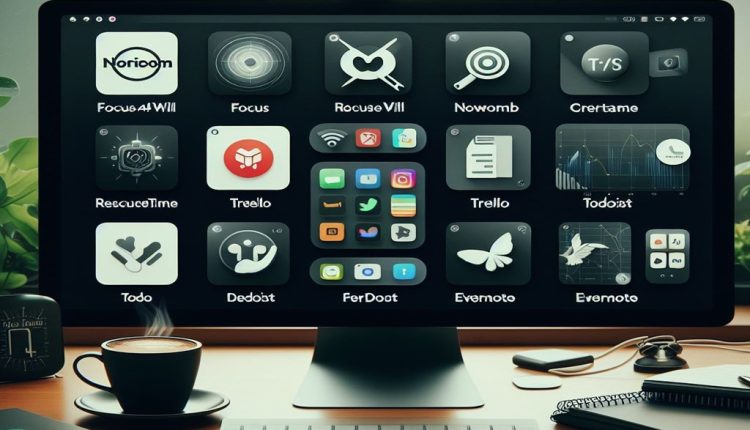Essential Freelancing Skills in Software Development
Are you considering a career as a freelance software developer? If so, you need to ensure you possess the necessary skills to succeed in this competitive field. Whether you’re just starting or have been freelancing for some time, having strong software development skills for freelancing is essential.
In this article, we will explore the key skills required for success in freelance software development. From getting started as a freelancer to technical proficiency and project management, we will cover all the essential areas to help you become a top-performing freelancer.
Our focus will be on providing you with insights on how to get started as a freelancer, enhance your software development skills, manage projects effectively, communicate with clients, and continually improve your problem-solving abilities. We will also discuss the importance of building a strong freelancing portfolio that showcases your skills and expertise to attract clients.
No matter where you are in your freelancing journey, this article will provide valuable guidance and insights to ensure your success as a software development freelancer. So, let’s get started and explore the essential freelancing skills in software development, starting with how to get started as a freelancer.
Getting Started as a Freelancer in Software Development
Freelancing in the field of software development is a rewarding and challenging career path. However, getting started can be overwhelming. The following tips will help you start your journey towards a successful freelance career:
- Develop your freelancing skills: Before jumping into the freelancing world, it’s essential to have a solid foundation of technical skills. Improve your coding skills by practicing regularly and participating in open-source projects. Additionally, enhance your communication skills and learn how to interact with clients professionally.
- Determine your niche: Consider your strengths and interests in software development, and define your niche. You can specialize in web development, mobile app development, or software engineering. Specializing in a specific area will help you stand out in a crowded market.
- Create a strong online presence: Build a website or create a profile on freelancing platforms such as Upwork or Freelancer. Be sure to showcase your skills, experience, and expertise in software development.
- Set your rates: Determine your hourly or project-based rates based on your skills, experience, and market value. Research market trends and stay up-to-date on industry standards to ensure you’re pricing competitively.
- Find clients: Utilize online platforms, social media, and personal networks to find clients. Attend meetups and networking events to make connections with other freelancers and potential clients.
- Be professional: When working with clients, maintain professionalism by meeting deadlines, communicating effectively, and being transparent about project progress. Take ownership of your work and take responsibility for any mistakes.
Following these tips will help you get started as a successful freelancer in software development. With dedication and consistent effort, you can build a rewarding and fulfilling career in freelancing.
Technical Proficiency in Software Development
Technical proficiency is the cornerstone of success in software development freelancing. As a software developer, you should aim to continually refine and advance your skills to stand out in a competitive market. Here are some key technical skills you must focus on mastering:
- Programming Languages: A deep understanding of programming languages such as Java, Python, and PHP is critical for software development freelancing. Ensure that you are proficient in at least one, if not multiple, programming languages.
- Database Management: Familiarize yourself with standard database concepts and technologies like SQL and NoSQL. You should be comfortable with setting up and managing databases, and querying and manipulating data.
- Software Development Tools: In this era of automation, learning software development tools like Git, Docker, and Jenkins can significantly boost efficiency, enhance collaboration, and contribute to a high-quality end product.
- Agile Methodologies: Agile methodologies like Scrum and Kanban are widely used in software development projects, emphasizing on team collaboration, iterative development, and continuous improvement. Get accustomed to these methodologies to understand how small, frequent releases can lead to better software.
Programming Languages Proficiency
| Programming Language | Proficiency Level |
|---|---|
| Java | Expert |
| Python | Intermediate |
| PHP | Expert |
By mastering technical skills like programming languages, database management, software development tools, and agile methodologies, you can better position yourself to attract high-quality clients and establish yourself as a competent software development freelancer.
Project Management and Organization
As a software development freelancer, managing your projects and ensuring they’re completed on time is crucial to success. Project management and organization are two skills that will help you achieve your deadlines and keep your workflows organized.
One effective strategy for managing projects is breaking them down into smaller, more manageable tasks. Identify the overall goal of the project and then divide it into smaller goals or objectives. This helps you keep track of progress and ensures you’re on track to complete the project on time.
Meeting Deadlines
Meeting deadlines is a critical aspect of project management. Late projects frustrate clients and give them reason to look elsewhere for their software development needs. To meet deadlines, create a timeline of tasks with estimated completion dates. Scheduling buffer time ensures any unexpected delays won’t further impede progress.
Organizing Workflows
Another key aspect of project management is organizing workflows. Unorganized workflows lead to wasted time and missed deadlines. One popular method of organizing workflows is using project management software such as Asana or Trello.
Effective Communication
Effective communication with clients is integral to successful project management. Keep clients up to date on progress, changes to timelines, or unforeseen issues that arise. By keeping clients informed, you foster a working relationship built on trust and reliability.
By mastering project management and organization skills, you can streamline your workflow, consistently deliver high-quality work, and keep clients satisfied, leading to repeat business and a thriving freelance career in software development.
Communication and Collaboration in Freelancing
Effective communication and collaboration skills are essential for success as a freelance software developer. As a freelancer, it’s crucial to ensure that you’re on the same page with your clients and other professionals involved in the project.
Communication techniques:
Keep your clients updated on the progress of the project, and make yourself available to answer any questions they may have. Use professional language and be concise in all your communications. When there are disagreements or concerns, address them constructively but firmly, striving to find mutually beneficial solutions.
The importance of collaboration:
Collaboration with clients and other professionals can help you achieve better results and expand your network. Keep in mind that communication skills and collaboration often go hand-in-hand. By collaborating effectively, you can build meaningful relationships that may lead to future projects.
Ensure that you’re adaptive and prepared to work with different communication styles, preferences, and different software development environments. Creating a healthy work relationship with clients and other professionals involved in the project might lead to success in your freelancing work.
Adaptability and Continuous Learning
The tech industry is evolving at a breakneck pace, which is why freelance software developers must stay up-to-date with the latest technologies and trends. Embracing a mindset of continuous learning can help you gain a competitive edge and stay ahead of the curve. The most successful freelancers are those who are constantly improving their skills, learning new frameworks, and keeping up with the latest industry developments.
To stay on top of your game, consider attending conferences, webinars, and training sessions focused on new software development skills for freelancing. You can also stay informed by reading industry publications and engaging with the broader tech community through online forums and social media groups.
In addition, it’s vital to remain adaptable in the face of change. This means being willing to pivot when necessary and learning new skills that will help you excel in a rapidly evolving industry. With so much innovation happening in the tech space, the ability to learn quickly and adapt to new situations is more important than ever.
Overall, embracing a growth mindset and a commitment to continuous learning and adaptability can help you succeed as a freelance software developer.
Problem-solving and Analytical Thinking
Freelancing in software development requires problem-solving skills and analytical thinking. As a freelancer, you may encounter a wide range of obstacles, from software issues to communication challenges. Your ability to quickly identify problems, analyze data, and develop effective solutions is pivotal to your success.
One strategy for enhancing your problem-solving abilities is to break problems down into smaller, more manageable pieces. This will help you better understand the core issues and identify multiple solutions. Additionally, developing your analytical thinking skills can enable you to analyze and interpret complex data, making it easier to identify patterns and trends.
Continuing to develop your freelance coding skills and software development skills will also help you to become a better problem solver. As new technologies emerge, you must adapt and learn, keeping yourself current in the fast-paced industry.
By honing your problem-solving and analytical thinking skills, you can not only overcome challenges but also impress your clients and set yourself apart from other freelancers in the field of software development.
Building a Strong Freelancing Portfolio
When it comes to attracting clients and showcasing your skills and experience, nothing beats having a strong freelancing portfolio. Your portfolio is your chance to demonstrate your expertise in software development and impress potential clients. Here are some tips and advice on how to build an impressive portfolio:
1. Show Off Your Best Work
Your portfolio is a reflection of your ability to deliver quality work, so it’s important to only include your best projects. Choose projects that showcase your technical skills, creativity, and problem-solving abilities. Be sure to include a brief description of each project, what technologies you used, and what your role was in the project.
2. Highlight Your Expertise
In addition to showcasing your best work, your portfolio should also highlight your expertise in specific areas of software development. This will help potential clients understand what you specialize in and what types of projects you are best suited for. Consider creating separate sections for different areas of expertise, such as web development, mobile app development, or database management.
3. Keep it Simple and Easy to Navigate
Your portfolio should be easy for potential clients to navigate and find the information they need. Keep the design simple and professional, and make sure all of the important information is easy to find. Consider using visual elements like screenshots or diagrams to help illustrate your projects and make your portfolio more engaging.
4. Get Feedback and Testimonials
Don’t be afraid to ask previous clients or colleagues for feedback on your portfolio. This can help you identify areas for improvement and make sure you are presenting yourself in the best possible light. You may also want to include testimonials from previous clients or colleagues to add credibility to your portfolio and demonstrate your ability to deliver quality work.
5. Update Your Portfolio Regularly
Finally, it’s important to update your portfolio regularly to reflect your most recent work and any new skills or expertise you have developed. This will help keep your portfolio fresh and relevant, and show potential clients that you are committed to continuous learning and improvement.
By following these tips and putting in the time and effort to build an impressive portfolio, you can attract more clients and stand out in the competitive world of software development freelancing. Good luck!
FAQ
What skills do I need to succeed as a freelancer in software development?
To thrive as a freelancer in software development, it is essential to possess technical proficiency in programming languages, project management skills, effective communication, problem-solving abilities, adaptability, and continuous learning.
How do I get started as a freelancer in software development?
To begin your freelancing career in software development, start by defining your niche and target market, creating a strong portfolio, establishing an online presence, networking with potential clients and professionals in the field, and continuously upgrading your skills.
What technical skills should I focus on as a freelance software developer?
As a freelance software developer, it is important to master programming languages such as Java, Python, C++, and Javascript, have expertise in web development, mobile app development, and database management, understand software development methodologies, and stay updated with emerging technologies.
How can I effectively manage my freelance software development projects?
To manage your freelance software development projects, it is crucial to set clear project goals and deadlines, prioritize tasks, break down projects into smaller milestones, communicate effectively with clients, track your progress, use project management tools, and maintain an organized workflow.
Why are communication and collaboration skills important for freelancing as a software developer?
Strong communication and collaboration skills enable you to understand client requirements, communicate your ideas effectively, collaborate with clients and other professionals, build strong client relationships, and ensure that projects are executed smoothly and meet expectations.
How can I stay adaptable and continuously learn in the field of software development?
To stay adaptable, continuously learn, and stay relevant in software development, make a habit of staying updated with the latest technologies and trends, participate in online communities and forums, take online courses or tutorials, attend conferences or webinars, and enhance your skills through practice and experimentation.
How can I improve my problem-solving and analytical thinking skills as a freelance software developer?
Enhance your problem-solving and analytical thinking skills by practicing programming challenges, breaking down complex problems into smaller parts, finding alternative solutions, seeking feedback and advice from peers, and adopting a logical and structured approach to problem-solving.
What does it take to build a strong freelancing portfolio in software development?
To build a strong freelancing portfolio in software development, showcase your best projects, include detailed descriptions of your role and contributions, mention technologies and frameworks used, highlight successful client outcomes, and regularly update your portfolio with new projects and skills gained.








